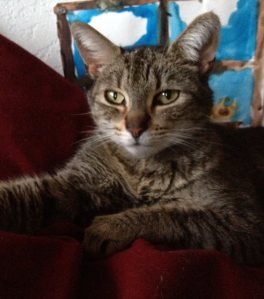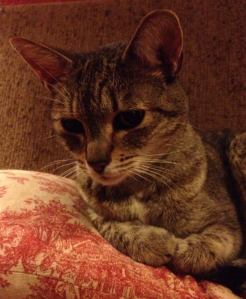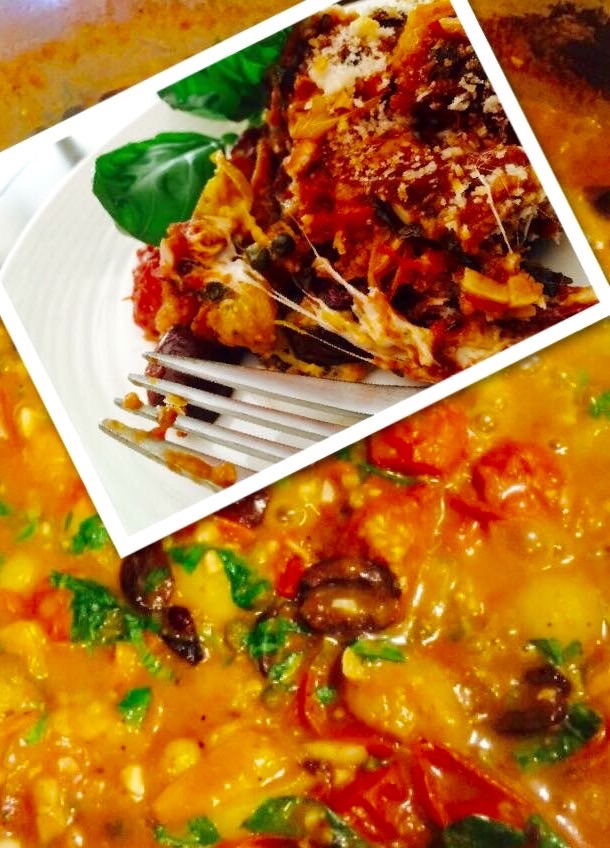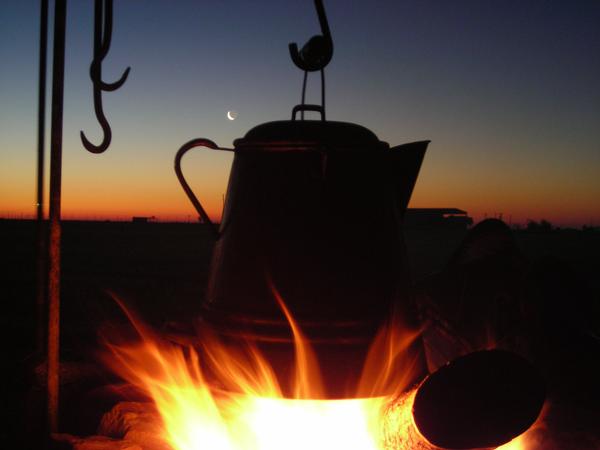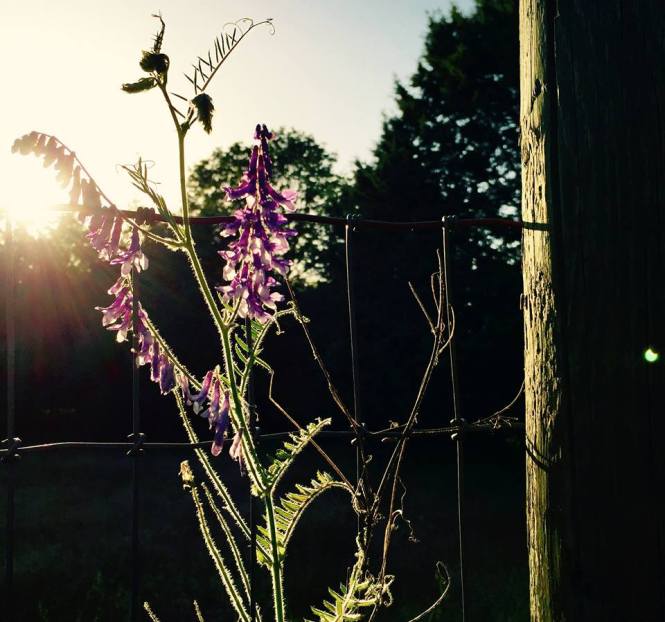
By Elizabeth Speth
I am not a good parent.
This is not false modesty. Do not rush to comfort or reassure me when I say this. It’s the truth, and my children will likely confirm the fact.
I’m not petitioning to be arrested here. I more or less understand the basics of childkeeping. Minimally, you must feed them, keep them clean and teach them to be kind. You get bonus points if you mostly refrain from embarrassing them, and help pay for college.
You don’t leave them unattended. Bad things happen to unattended children.

But the rest of it has really eluded me, though I have read countless parenting books and compared notes and rubbed elbows with my betters. I have struggled and chafed mightily against my failings. In the nearly thirty years I have wrestled and warred with parenting, the only philosophy I have managed to pull from the smoking wreckage is this:
Take your child to lunch.
I mean it. Every chance you get. In a proper restaurant, with napkins that must go in your laps, with a menu that demands deliberations and choices. Sit across the table from each other, and relinquish your leadership role. Be equals. Be people out to lunch.
That’s right. My only parenting tip involves parenting time off. All fun, and no work.
You don’t cook, clean, or assume responsibility for the enjoyment of the food.
You take a break from the heavy slog of molding, teaching, shaping, guiding, refusing.
Go ahead and place the pressure of parenting on your server. Let her make conversation for a while. Let him engage your child, find things on the menu to entice the kid’s mercurial tastes, figure out what is going on in that tiny, inscrutable head.
Let your child’s critical attention and fragile expectations fall upon that tray-carrying, apron-shielded angel of mercy. Order yourself a cocktail, sit back, and sigh.
If the meal disappoints, if the experience is a bust, if the carrots are cut in the wrong shape and the fish arrives with an eye still in its head, the server is the jerk. Not you. See? Win-win. And still no dishes.
You? Are the good guy. There’s a gratitude factor, however reluctant, that comes to you when you say: ‘Order whatever you’d like!’ And you must do that. And you must mean it. Lunch is a no-holes-barred experience, a rarified world of exemptions and permissions.
And, really, how many other times in your life can you really say that to your child? ‘Have whatever you want.’ Doesn’t that feel marvelous, rolling off your tongue? How bad can the damage be? It’s the lunch menu.
Go ahead, Kid! Have a virgin margarita with whipped cream that’s mostly sugar and comes to the table looking for all the world like dessert even before your cheese enchilada arrives. I want you to! Do I suspect you won’t like calamari at all, with its little squid legs still attached under that crispy coating and silky orange aioli? Yes! But that’s what takeout boxes are for, and, here, fill up on these fabulous chips with salsa! Shall we order guacamole?

The rules are simple. Everyone eats as much or as little as they like. The kids get to talk about anything. Anything. If they tell you they have taken to peeing in their closets, shoplifting, or skating off the steeply sloped roof of the high school cafeteria at night, all you are allowed to say is: ‘Oh really?’
Pregnancy scare? Second thoughts about college? Flag down that busboy for more butter. If you are tempted to parent, take a sip of wine. Blink, nod, order the cheese plate. Or a second sushi boat. Or spicier curry so you can justify your watery eyes. Later, when you have dementia and wear diapers and have terrible confessions of your own, they may return the favor.
Of course, there will be some inadvertent parenting that goes on. Obviously, your child has to behave — you are out in public. Insist upon politeness to all who care for you during your meal. Please, and thank you, and eye contact are non-negotiable. Teach them how to tip well — very well — so that it will be that much better when you come back. Explain to them how hard the work is, this making happiness for strangers out of chilled plates and lettuce and baskets of bread.
You will of course tweak these rules and guidelines for yourself, but, I beg you, take your children to lunch. Do it because they are here now (that won’t always be the case), and you are here now(the clock is definitely ticking on this fact), and don’t you have to eat lunch anyway?
Do it because of the lies they will tell you for the rest of your life.
I’m not talking about naughty lies. I’m talking about all the times they will say things are fine when they are not.
Do it because they will go through terribly difficult things you will never have even an inkling about.
Do it because when they were first handed to you in the hospital, though you had carried them for months and months, you were shocked at how heavy and self-contained they were, and that’s when you understood you were truly separated, going forward.
Do it because you did and will make mistakes, and you were and will be impatient and short-sighted.
Do it even though they are hard on you. And because only they know what the rhythm of your breath and the beat of your heart sound like from inside your body.
Do it because you break their hearts sometimes, as much as they break yours.
You do. You break their hearts too.
Case in point: my mother was not the sort to take her children to lunch, or even the sort to provide lunch on any given day. A mentally fragile and self-absorbed woman, her thoughts rarely entertained things like food, shelter and clothing. She was consumed by her own disastrous love life, her endless quest for the perfect fad religion, and her conviction that she was a true ‘artiste’ in terms of temperament, if not exactly in terms of production.
It took me a lifetime to figure out that it wasn’t personal. She was a bad parent, just like me. But she did not want to be a mother, and I did. That was pretty much the only difference between us.
As a child, I was chronically lost track of, and as a result occasionally unfortunate things happened. I did not bear up well, I admit it. An inevitable general haze of terror hung over the first twelve or so years of my life. I was afraid of everything, although I mostly kept it a secret.
Our lives were transient, and chaotic. Always there was a new place to live, a new classroom, a new man suddenly in a position of authority, new dangers to suss out. This did nothing for my catatonic outlook.
One snowy morning in rural New Mexico, in the dark lull between Christmas and spring, my mother walked me to a new bus stop in a new neighborhood on a new first day of school, holding my mittened hand while I trudged beside her in wet shoes, my attention riveted on my constantly roiling insides.
The cold was ruthless. It was wicked. If I could remember the date, and researched it, I know it would have been some sort of New Mexico winter record low temperature. Cows died that day. Fingers and toes were lost. Pipes burst, and I’m sure ballads and folk songs were written.
The bus stop was in front of someone’s house, and all sorts of children were running and shouting and doing unspeakable things to each other. The woman who lived inside the house came out to her front steps, and called everyone inside until the bus arrived. It was too cold, she said, for man or beast.
My mother was not a sociable sort of person, and so she indicated that I should go in, and she, presumably, would go home to thaw out. I clung to her. “Please,” I said, terrified. “Please don’t go.”
Go inside, she said firmly to me.
“Please come in with me,” I urged her, knowing she would leave me alone with all of the boisterous young strangers destined to be my future classroom tormentors. “Please don’t leave me here.”
My mother got quite stern, told me to stop fussing. But I wouldn’t let go of her until she finally, reluctantly, promised she would stay. Outside. I was to go in. She would not. I knew it was her final, rock-bottom offer. Heavy of heart and foot, I followed the others inside, and spent the next ten minutes watching her nervously through the window. To my utter surprise, she stood sentinel there, alone, her back to the house, blowing out gusts of steam and occasionally stomping her feet.
The sight of her nearly broke my six-year-old heart with gratitude. It just about brought me to my soggy knees. When I could stand it no longer, I scurried back outside to wait with her for the bus. We didn’t say anything else about my being out there. We didn’t speak at all.
I will never forget the incredible tide of sadness I felt that morning. I don’t think I’ve ever been as emptied out by grief. Her parenting sacrifice was bigger that day than any of mine. Even then, I understood that she did not want to be there. She would rather have been anywhere else.
It wasn’t personal. I do understand that now.
I take my children to lunch because they see my flaws, which are weighty things for them. I take them out to lunch because sometimes parents are a terrible burden.
I take them to lunch because of my mother’s unexpected steadfastness in a sea of swirling snow, and her vulnerability, standing out there alone, waiting.

It’s important to remember that people are vulnerable, and that’s most obvious when we eat. Even mean people look vulnerable when they eat.
Look at the poor horse, a flight animal, whose only defense against predators is vigilance. Yet he must put his head down to eat.
Take your children to lunch because, if you must be vulnerable, you can at least be so together.
Pick your reason. But do it. Be people out to lunch. Together.


